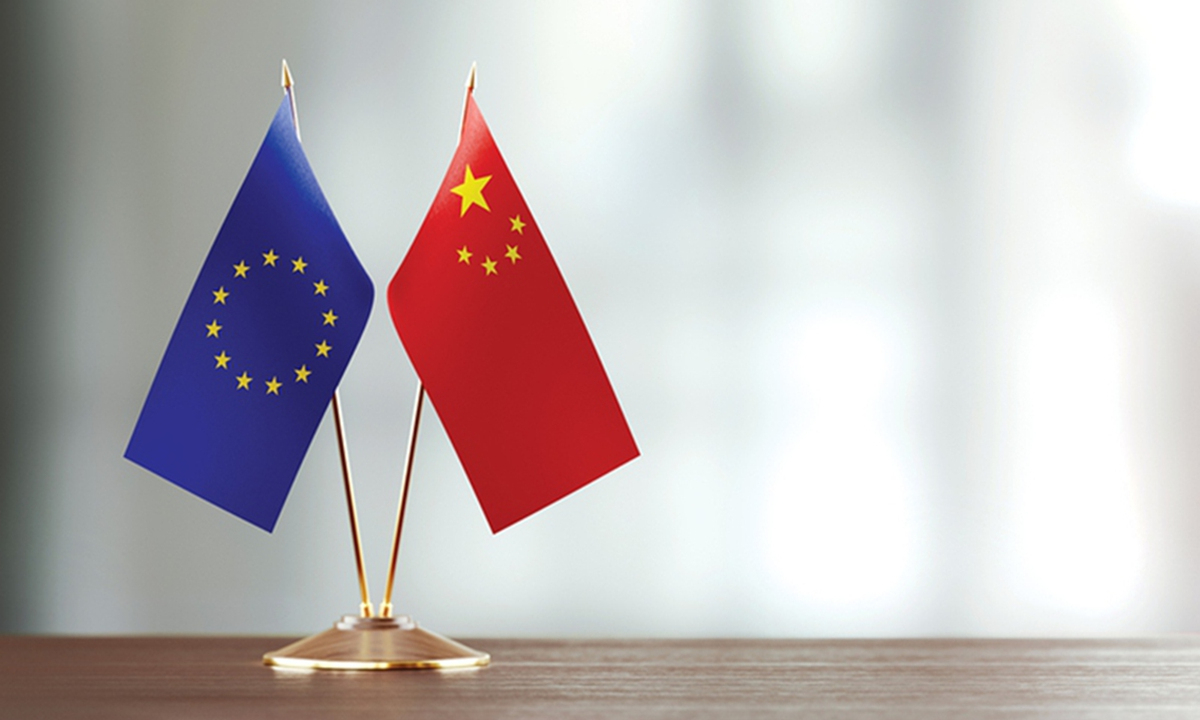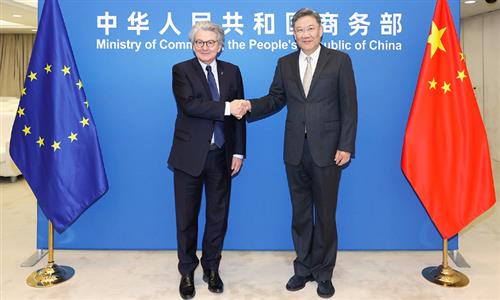EU’s key material supply risk does not stem from China; joint efforts needed to explore consensus: experts

China EU Photo: VCG
The risk to Europe's critical raw material supply doesn't stem from China but rather from the changing international landscape and environmental dynamics, and both sides should seek a consensus to jointly uphold the stability of the global supply chain. It's crucial to shift the focus of bilateral relations toward common interests and avoid undue "politicization" of economic issues, experts said on Tuesday.
The comment came after a latest deal reached by the EU on measures to become more self-sufficient in key raw materials, which some foreign media outlets viewed as a move aiming to reduce reliance on China.
The so-called Critical Raw Materials Act was initially proposed in March, with an aim to ensure that no more than 65 percent of the EU's consumption of each strategic raw material comes from a single third country, according to media reports.
The negotiators also agreed to add aluminum to the list of strategic raw materials as well as synthetic graphite, Reuters said.
From prior trade disputes with the US to its oil supply crisis under the backdrop of the Russia-Ukraine conflict, the EU has experienced a heightened sense of crisis regarding raw materials, Cui Hongjian, a professor with the Academy of Regional and Global Governance with Beijing Foreign Studies University, told the Global Times on Tuesday.
There are growing concerns within the EU bloc that critical raw materials could be weaponized, given the geopolitical challenges. This emerging perception and assumption are shaping EU's stance on the strategic importance of securing key raw materials, Cui said.
Yet, the actual implementation is not so straightforward, and the EU still faces challenging issues that are difficult to resolve, experts noted.
First, politicizing economic and trade issues is inherently a "distorted approach," which will raise costs for businesses and industries. One question then arises: Who will bear these costs, and how will they be distributed? Cui asked.
Second, establishing a new industry chain requires the support from various factors and is not an overnight achievement. Trying to find alternatives in Africa or in Latin America will bring the EU back to the issues of security and stability as these markets may not be as mature or stable as China and the broader Asia-Pacific region, according to Cui.
Overall, this bill's political significance seems to far outweigh its economic implications, Cui noted.
The EU has refuted "decoupling" from China but its push for "de-risking" continues. As EU chief Ursula von der Leyen is reportedly planning a visit to China "within weeks," experts said that instead of simply "staying in touch," it is crucial to shift the focus of bilateral relations toward common interests and strive for more positive exchanges.
Citing the 10th EU-China High-Level Economic and Trade Dialogue held in September, Cui said that it is expected that the two sides could work together to explore a consensus as the risk to Europe's critical raw material supplies doesn't come from China but rather from the changing international environment.
During the dialogue, the two sides agreed on building stable and trustworthy industry and supply chains, jointly safeguarding the resilience and stability of global supply chains and opposing "decoupling," according to China's Ministry of Commerce.
The two sides also discussed issues related to the establishment of a China-EU raw material supply chain early warning mechanism and agreed to maintain communication. They also agreed to establish a dialogue mechanism in the field of export controls to engage in discussions and dialogue on export control policies and practices.

